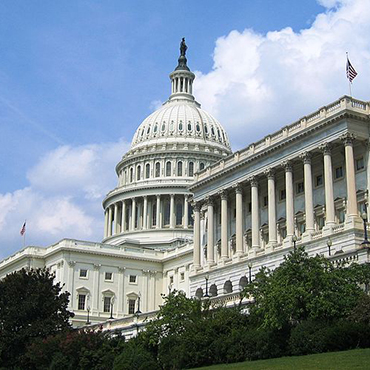Senate passes Data Act
The version differs from the one the House passed in November, but lawmakers are confident the legislation will soon be going to the president.

A bill to establish uniform federal standards for publishing government spending data passed the Senate by unanimous consent April 10. Under the Digital Accountability and Transparency Act, known as the Data Act, spending information would be published as machine readable, extensible open data. For the first time, it would allow watchdog groups, oversight bodies and others to track federal dollars as they move through the government from appropriation to expenditure.
The bill, a substitute amendment designed to replace a measure passed overwhelmingly by the House, was sponsored by Sens. Mark Warner (D-Va.) and Rob Portman (R-Ohio), and also backed by the chairman and ranking member of the Senate Homeland Security and Government Affairs Committee, Sen. Tom Carper (D-Del.) and Sen. Tom Coburn (R-Okla.).
“Our taxpayers deserve to know how their federal funds are spent -- dollar for dollar-- and it is the government’s obligation to share that information in a clear and accessible way," Warner said in a statement.
The Senate version does not include changes proposed by the Office of Management and Budget, which were made public earlier this year. The bill retains "Government-wide financial data standards for any Federal funds made available or expended by Federal agencies and entities receiving Federal Funds," which includes contractors, subcontractors, and grant recipients. Treasury and OMB would share responsibility for setting data standards. The data itself would be reported on USASpending.gov, or a platform designated to serve the same purpose. The bill also retains data quality audits and stakeholder input sought by backers of the bill.
"Sens. Warner and Portman deserve applause for retaining a strong data standardization mandate and data publication mandate," said Hudson Hollister, executive director of the Data Transparency Coalition, which urged passage of the measure. The bill "remains the most significant government transparency law since [the Freedom of Information Act] passed in 1966. If the executive branch shows the proper leadership, which I believe they will, then the Data Act will transform our government and transform our society," Hollister said.
The measure moves back to the House of Representatives, where it is expected to pass. Lead sponsors Reps. Darrell Issa (R-Calif.) and Elijah Cummings (D-Md.) promised quick action. " I applaud the Senate’s action today, and I will work with my House colleagues to send this bipartisan, bicameral compromise to the president’s desk," Issa said in a statement.
There was no word from the administration on whether President Barack Obama will support the measure.
If it is enacted, implementation is likely to prove time consuming. Under the Senate version, Treasury and OMB will have a year following the enactment of the bill to set data standards. After that, agencies will have two years to comply with data standards once they are issued, and it will be three years before spending data in the required format appears on USASpending.gov. There is also a separate process in place for reporting by recipients of grants and contracts, beginning with a pilot program that covers multiple agencies and between $1 billion and $2 billion in awards.
Backers expect that it could take more than four years to fully.






